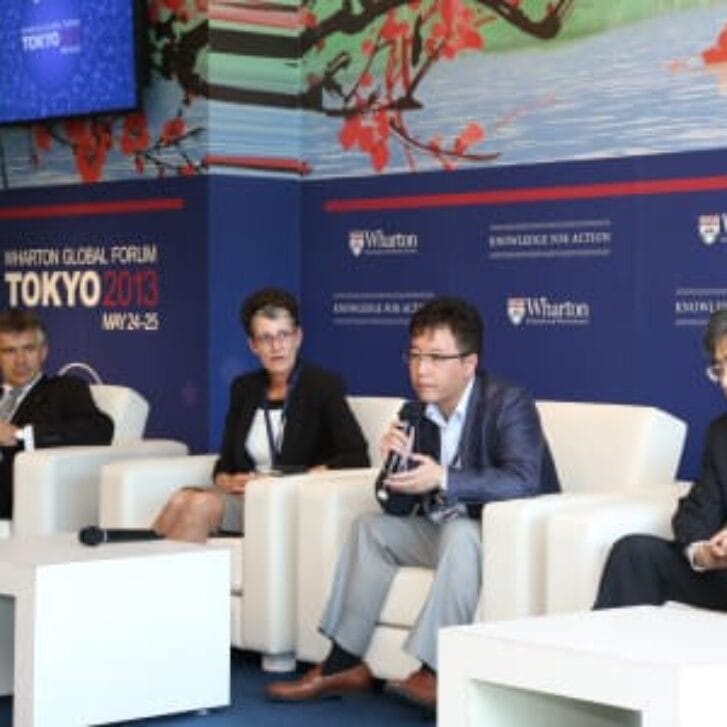Fall is an extraordinary time on any college campus, and Penn’s is no exception. I recently had the pleasure of formally welcoming our incoming MBA and undergraduate students to campus, and during those interactions, I encouraged them to consider what it means to be a member of the Wharton community.
They have just joined the oldest, largest, and most influential business-school network in the world. And while our dominance and heft are unrivaled, I also reminded our newest students that the ethos of Wharton is so much more. We were founded with the purpose of preparing leaders for business and public service who would go on to serve as “pillars of the state.”
Today, we are at a pivotal crossroads, one where the community pillars whom Joseph Wharton bravely sought to educate — those who provide the stability, support, and strength essential to any community’s well-being and cohesion — are needed more than ever.
Around the world, we are living in times of unprecedented division coupled with a dangerous devolution of civil respect. More and more, the things we hear and see, the information we consume, and the way we communicate are bloated with bias and steeped in self-interest. I have found myself fearful that we risk irrevocable damage unless we commit to broadening our perspectives — not limiting them.
Against this backdrop, I encouraged our incoming students to focus on more than just their own growth. I urged them to use their Wharton education to expand their worldview by taking in new ideas and engaging across differences. And I charged them to operate with accountability and intentionality.
My expectation for all Wharton students is that they will take ownership of their actions and the consequences of those actions. This isn’t to say our students won’t make mistakes. Being accountable means acting responsibly and learning from missteps along the way.
Intentionality, on the other hand, is making deliberate choices that align with your values and long-term goals. It involves having a clear vision and consistently working toward that vision with purpose and dedication.
My advice to our students this fall is to be just as intentional about listening as they are about lobbying. Don’t fall into the trap of believing your job is solely to advocate for your point of view. Commit to being curious about others and how they see the world. Make it your mission to know as much about the lives they’ve lived as you do your own. And go out of your way to learn from the diversity of ideas available to you as a student at Wharton.
While this guidance was intended for our newest crop of students as they embark on the life-changing journey that is Wharton, we can all benefit from the principles that undergird accountability and intentionality.
Members of the Wharton community have a unique responsibility to excel in these areas for one simple but important reason: because a Wharton education is designed to transform both your future and the future of others. Wharton graduates go on to lead the world’s largest companies. You serve as heads of government and titans of industry, creating fields and functions that don’t even exist today. The world looks to you for advice, for guidance, and for novel ideas that are capable of addressing the world’s challenges.
With that immense power comes a profound duty to consider the impact of your actions. And though it is a tremendous responsibility, it’s one I am confident our students will be prepared for if they put the twin principles of accountability and intentionality to work. I invite you, our alumni, to join me in inspiring tomorrow’s leaders to not only be great, but also to be good.
Erika H. James is dean, Reliance Professor of Management and Private Enterprise, and professor of management at the Wharton School.
Published as “Two Essential Principles for Tomorrow’s Leaders” in the Fall/Winter 2024 issue of Wharton Magazine.


























